Uncategorized
This school is fighting antisemitism all wrong. Why is it working?
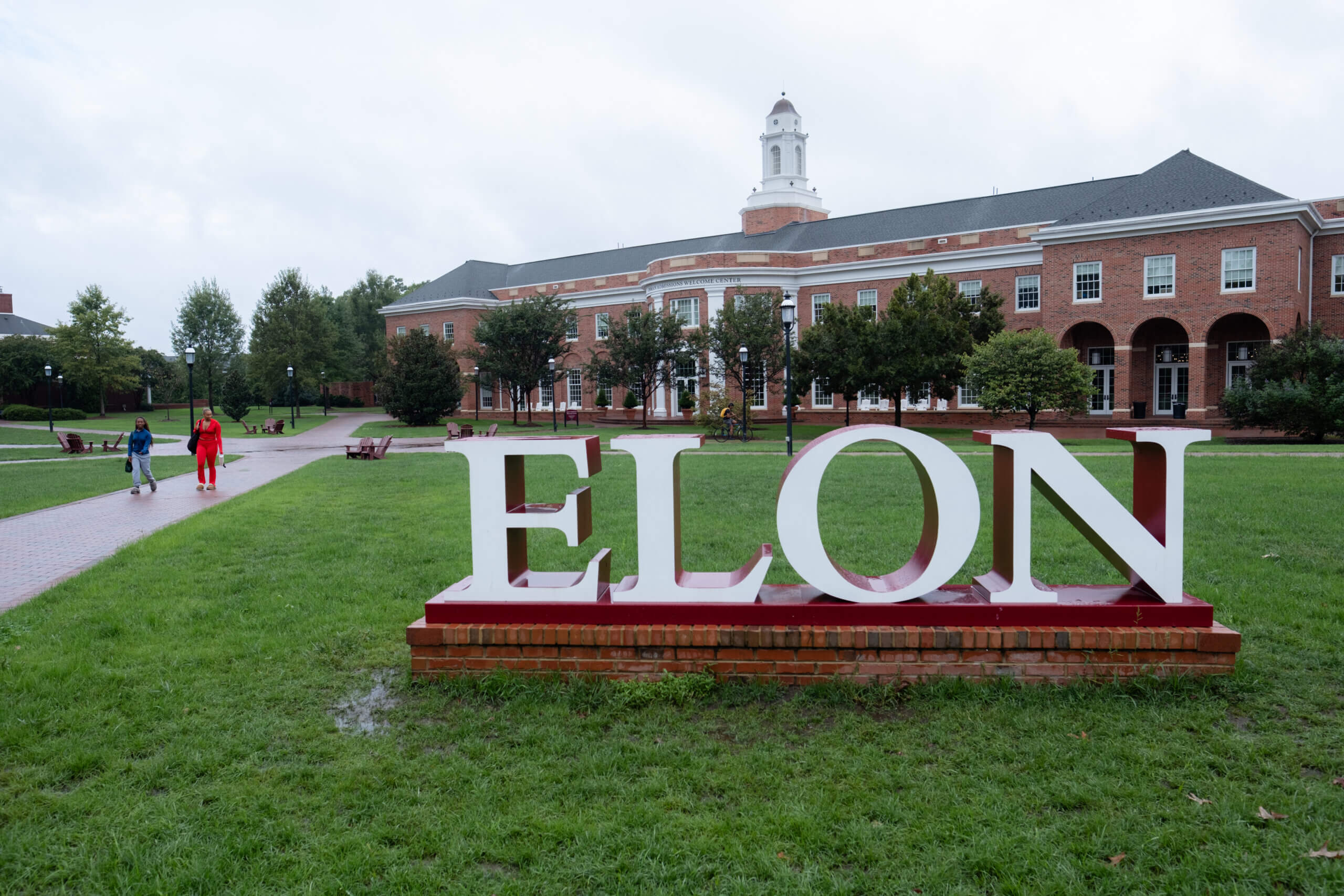
ELON, N.C. — A friend approached Rachel Bermont as she was leaving a high school party in New York City over the summer. “I know you’re Jewish,” he began, “but don’t you hate what’s happening with Israel?”
Bermont had come to expect these questions, the same way she anticipated stares when she wore a Star of David necklace on the subway. But it took a toll. “Just because I’m Jewish doesn’t mean I’m Noa Tishby,” Bermont told me, referring to the Israeli actress-turned-activist. “I’m not a representative.”
She picked Elon University to escape that pressure, and felt her choice validated on move-in day in August when her Catholic roommate’s questions were about Shabbat meals, not Gaza. “We don’t have to talk about Israel or Palestine,” Bermont said. “It’s safe to be a Jew.”
Others agree. The Anti-Defamation League vaulted Elon to prominence as a destination for Jews when it awarded the school one of just two “A” ratings on its inaugural campus report card last year, alongside Brandeis University.
The grade was a gamechanger.
Greg Zaiser, Elon’s vice president for enrollment, said that every Jewish family he met during a recent trip to Seattle had learned about the school from the ADL. StopAntisemitism, another watchdog group, also awarded Elon an “A,” and the liberal arts college is a favorite with Mothers Against College Antisemitism, an influential Facebook group with more than 60,000 members.
What’s surprising is that Elon does almost none of the things that these groups and others, including the Trump administration, insist is necessary to keep Jewish students safe. The school hasn’t amped up student discipline or mandated special antisemitism training for the community. It hasn’t banned slogans, scaled back its diversity programs or adopted a definition of antisemitism that includes strident protests against the war in Gaza.
“We really just want to keep our students talking with each other”
Jon DooleyVice president for student life at Elon University
The school has instead focused almost its entire response to Oct. 7 on education and civility, leveraging a longstanding obsession with student satisfaction — borne decades ago from an expansion plan that relied on tuition dollars rather than an Ivy League endowment — to head off some campus conflicts over Israel before they begin (sometimes, literally, by asking nicely) while avoiding limitations on freedom of expression that other universities have found necessary to achieve the same effect.
When Jon Dooley, Elon’s vice president for student life, attended a recent summit on antisemitism in higher education he realized how much his school’s approach differed from other universities.
“You’d sit with a table and they’d talk campus by campus about policy things — the ways they were trying to legislate it,” Dooley recalled. “We really want to just keep our students talking with each other.”
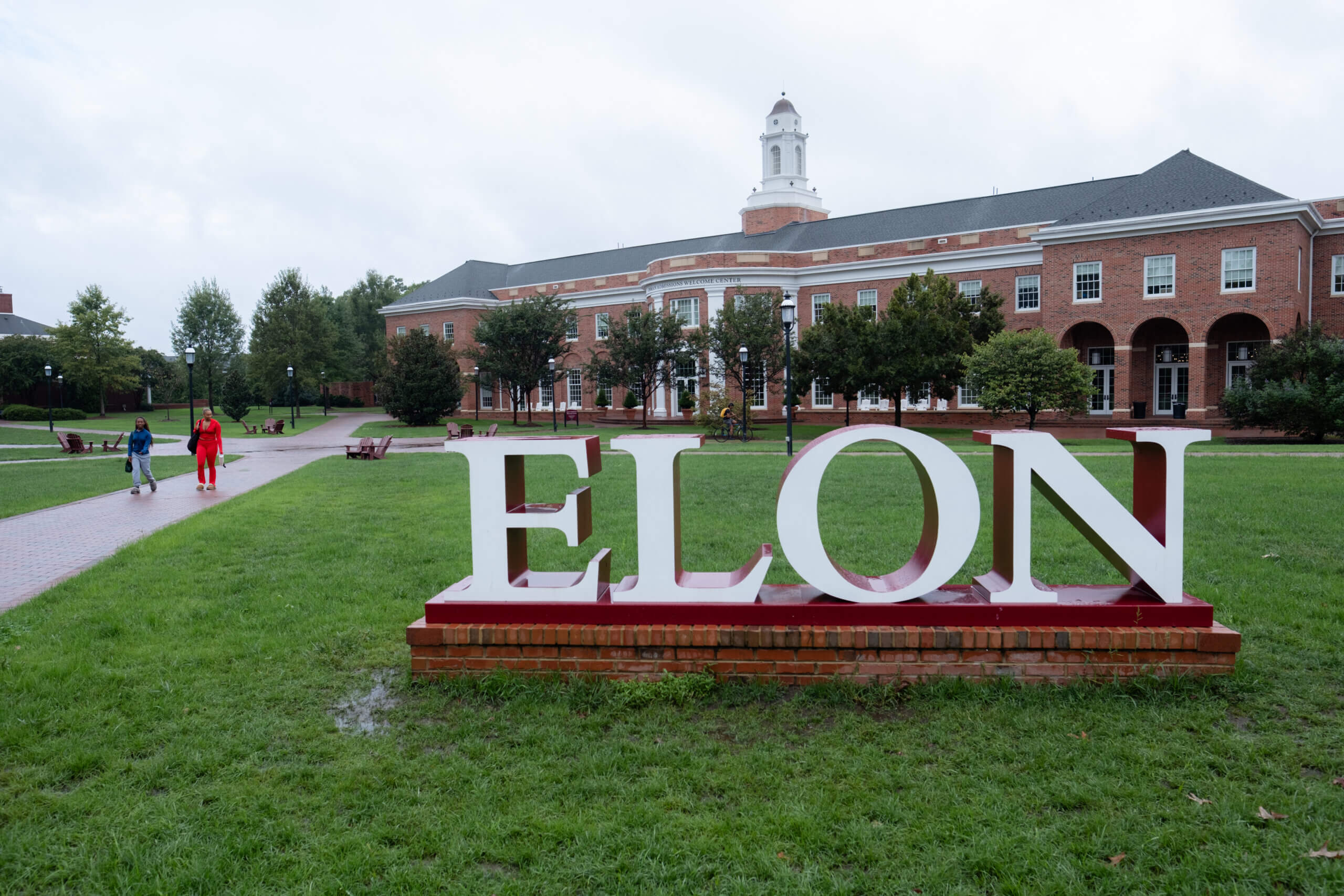
Elon’s student body is less political than those at schools like Columbia University, and its “speakers corner” meant to enable impromptu protests often sits empty. Yet the administration greenlit two marches for Gaza — “I would be lying to you if I said that didn’t make me anxious,” Zaiser told me — and faculty hosted a lecture by the founder of a Palestinian human rights group that pioneered the accusation of apartheid against Israel in the early 2000s. A student at the law school graduation two months after Oct. 7 unfurled a Palestinian flag while crossing the stage without incident. People have written “from the river to sea, Palestine will be free” in chalk on university walkways and placed pro-Palestinian stickers on the large “Elon” sign outside the admissions building (maintenance quickly cleaned up both). A Palestinian-American comedian who has accused Israel of genocide was hosted as part of a prestigious campus lecture series last spring.
Any one of those incidents might have been grounds for months of parent outrage, a news cycle or even a federal investigation at another school.
Yet none of them seems to have dented Elon’s reputation with Jews. When I first visited campus in April 2024, at the height of Gaza solidarity encampments at schools across the country, the students I spoke with at Hillel and Chabad said that, strained friendships aside, they were thriving.
“You hear about people hiding in their dorm rooms at other colleges,” Guy Brill, a sophomore at the time, told me as we sat outside the Hillel house on a Friday evening last year. “I feel very grateful to come out here every week and feel completely safe and comfortable.”
And while Jewish students played a leading role in many of the demonstrations and encampments on other campuses, Elon has managed to win plaudits from pro-Israel organizations without alienating those who are deeply critical of Israel — an almost unheard of feat two years into the Gaza war.
“We’ve said that we want more dialogue that represents our beliefs, and they’ve said, ‘OK.’”
Tess TraynerJewish student at Elon University
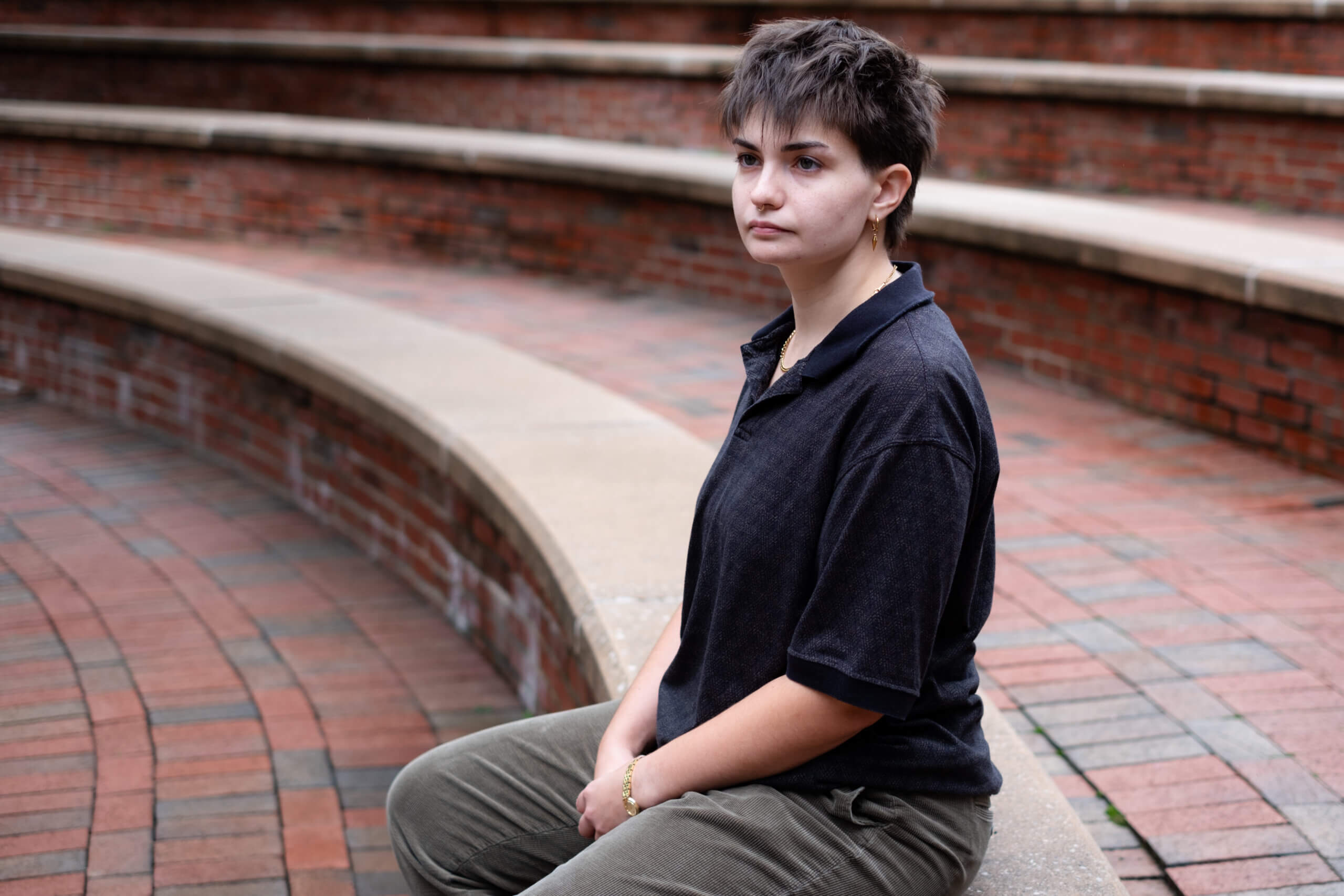
“The wielding of antisemitism as a weapon to silence protest or differing beliefs hasn’t happened here,” Tess Trayner, a Jewish student who joined both the marches for Gaza, told me. “We’ve said that we want more dialogue that represents our beliefs, and they’ve said, ‘OK.’”
Elon’s success in navigating this maze can be seen in the composition of its freshman class, which is estimated to be at least 17% Jewish, maybe as much as 25% according to Chabad. “Thankful to have a top notch university that is so supportive of our Jewish students,” one woman in the Facebook moms group wrote earlier this month alongside the enrollment news, a break from the group’s regular diatribes about what other schools are doing wrong.
How did a small university with little national profile and virtually no history of Jewish life — Elon’s mascot was the Fighting Christians until 1999 — become a mecca for Jewish students while ignoring the most forceful advice about how to fight antisemitism?
And what can the answer tell us about the future of Jews in higher education after Oct. 7?
White, wealthy and apolitical
Southern schools have started to develop a reputation for offering Jewish students a respite from protests against Israel and Zionism, through a less charged political climate — sometimes code for a more conservative one.
But that manifests differently at Elon than at its neighbors. At Duke University, about 40 minutes away, pro-Israel students told me they felt buoyed by a supportive administration and an aggressive Chabad chapter to go “on the offense” by blanketing the campus in Israeli flags and confronting protesters.
And at the University of North Carolina in Chapel Hill, the school’s chancellor made headlines for storming into the middle of a tent encampment surrounded by a phalanx of police and fraternity members to restore an American flag that had been replaced with a Palestinian one.
At Elon, Jewish students who support Israel aren’t confronting their opponents with the help of police or school leaders — they’re largely avoiding such confrontations altogether.
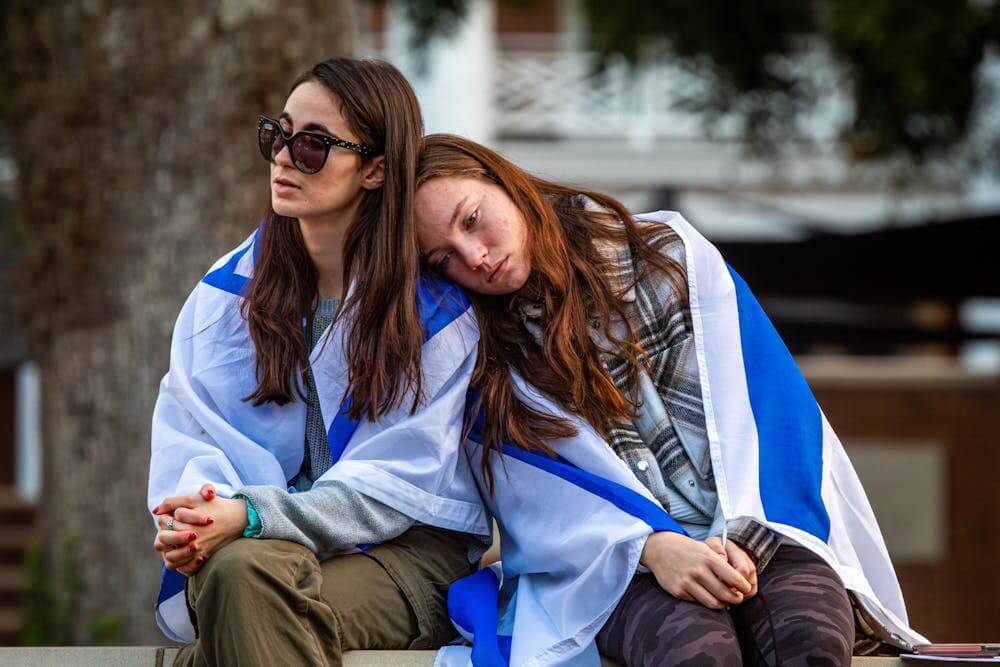
In the first days after the Oct. 7 Hamas terrorist attack, Hillel and Chabad held a gathering for Israel, and the Jewish fraternity AEPi led a march through campus. But the school did not descend into warring factions. “There are definitely two sides, but never to a point where I’m scared to walk through the middle of campus,” Simon Mendelsohn, a senior, told me last year.
Part of the placid climate is due to the fact that Elon is not trying to manage the kind of diversity that exists at the City University of New York, for example, which has a porous relationship with the city it serves and absorbs thousands of Jewish and Palestinian students, among a wide range of others.
Elon is a bubble. Nearly 80% of graduates are white — compared to 26% at Columbia, for example — and students pay 95% of the full cost of tuition on average, reflecting the affluent nature of a school some call “Camp Elon.”
“Families say, ‘Oh, Elon, it’s so diverse!’” said Zaiser, the admissions director. “If you’re coming from a prep school in New England, Elon is very diverse… But we have a long way to go.”
A relatively homogeneous student body that tends to be less interested in politics — less than 3% of students major in political science, well under the roughly 10% rate at Columbia and Harvard — certainly gives Elon an advantage when it comes to avoiding acrimony over the war in Gaza.
Around 150 people joined the “Walk for Palestine” last year, less than 2% of Elon’s 7,300 students, while national polls have found that around 7% of students across the country participated in pro-Palestinian demonstrations and an even higher share joined in at hotspots like Columbia, where 16% protested in support of Palestinians.
“Elon hasn’t followed the same playbook.”
Betsy PolkSenior director for Jewish life at Elon University
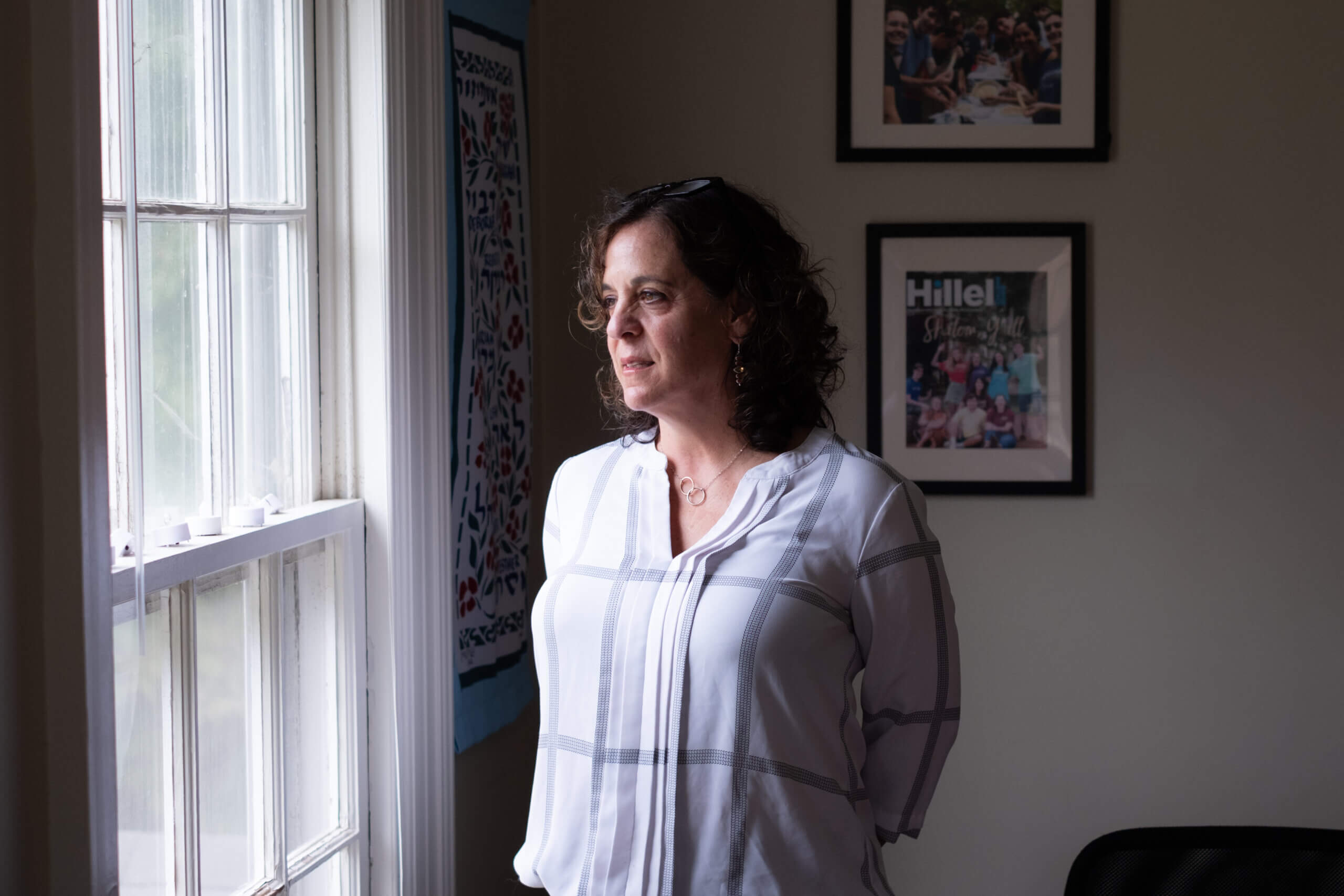
Betsy Polk, the director of Jewish life at Elon, has been reluctant to celebrate the school’s ADL rating in part because she felt the report card penalized her colleagues on other campuses who were “actually doing even harder work and, because of things beyond their control, they were put in a bad light.”
Still, Elon’s various advantages aren’t a guarantee of success. Lehigh University is nearly 20% Jewish — and 62% white — but has been rocked by campus demonstrations and was forced to settle claims of antisemitism with the federal government. And while Elon and Colorado College share two of the wealthiest student bodies in the country, the latter was branded with a “D” by the ADL, and the Trump administration is investigating the school over its handling of antisemitism on campus.
Elon’s leadership has made a combination of savvy, occasionally risky, decisions over the past two years that helped it escape the toxic climate that has swept over other schools. “Elon hasn’t followed the same playbook,” Polk acknowledged.
A sense of belonging
Almost immediately after Oct. 7, a group of Elon faculty organized a lunchtime discussion where hundreds of students cycled through 15 tables with different staff and professors explaining various aspects of the conflict. One talked about how the media was covering the war, another explained what the West Bank was. It was, I was told, classic Elon. The school, which has been rated best in the country at undergraduate teaching for four years running, tries to respond to horrific news — including the recent assassination of Charlie Kirk — with education.
President Connie Book responded to the roundtable discussion on the war by appointing a committee to create programming about the conflict, including inviting speakers to campus.
One of those speakers was Jonathan Kuttab, the founder of Al-Haq, a Palestinian human rights organization that has repeatedly been branded as a terrorist organization by Israel, who accused Israel of genocide. His comments outraged some Jewish students, but the school didn’t apologize or seek to reign in the committee. Instead, it organized a dinner between a few of the angry students and Kuttab at a hotel on campus and Book sent out an email defending the faculty who invited Kuttab while adding that his remarks were “divergent” from the planned program.
The controversy died down, and it didn’t stop Elon from allowing students to select Maysoon Zayid, a Palestinian-American comedian who has been outspoken in her opposition to Israel’s war on Gaza, as part of a longstanding liberal arts lecture series.
Elon’s leniency toward speech that has found other universities hauled before Congress and defunded stems in part from the fact that, in virtually every other area of campus life, few seem to doubt the administration has their back at a school where 15% of the students are Jews and Jewish life has been woven into the university for years.
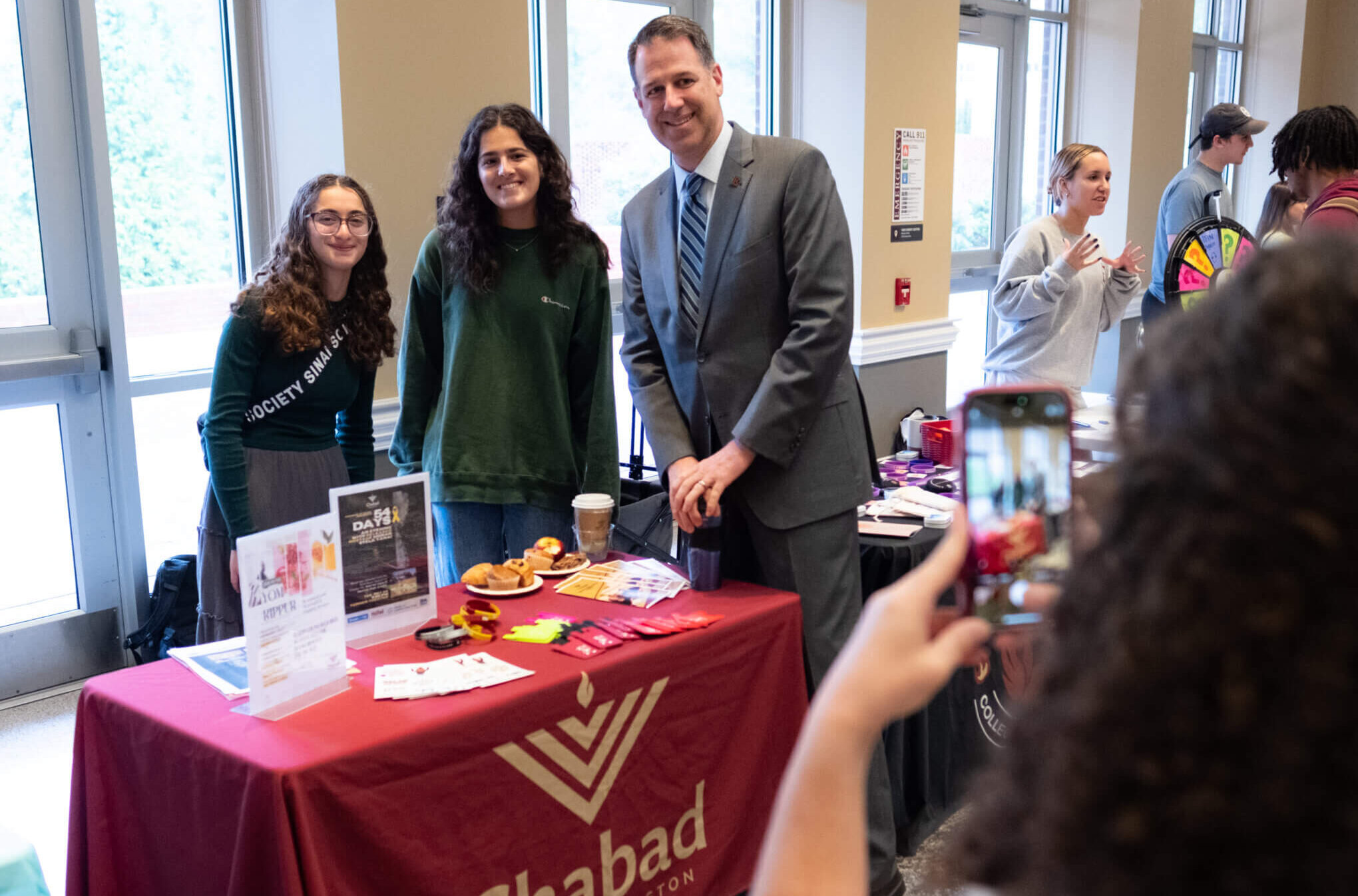
Around the last Gaza war in 2021, Elon commissioned a survey that found Jewish students were more likely to feel valued at the school than non-Jewish students (67% compared to 61%) and to feel a sense of belonging (70% compared to 65%).
When I tagged along on a campus tour, the student guide was a graduate of a Jewish day school who mentioned that the on-campus movie theater had screened both the Will Ferrell flick Step Brothers (“One of the greatest movies of all time”) and hosted a Holocaust survivor (“That was really cool”).
The Catholic priest on campus built an ark to hold the university’s Torah scroll, carving acorns into the doors to represent the abundant oak trees on campus, and administrators regularly attend Jewish services at Elon. A Jewish parents council was created in 2011, the year before a Jewish studies minor was created, and the school has chapters of Jewish fraternities ZBT and AEPi, which hangs an Israeli flag in its window. This year, the Jewish sorority AEPHi opened a chapter at Elon.
During Shabbat services at family weekend in September, Shani Spiegle, chair of the parents group, noted the huge banner hung outside the multifaith center on campus celebrating Rosh Hashanah and Yom Kippur. “On other campuses that might not still be standing — or it might have some graffiti — but it is loud and proud,” Spiegle said to applause.
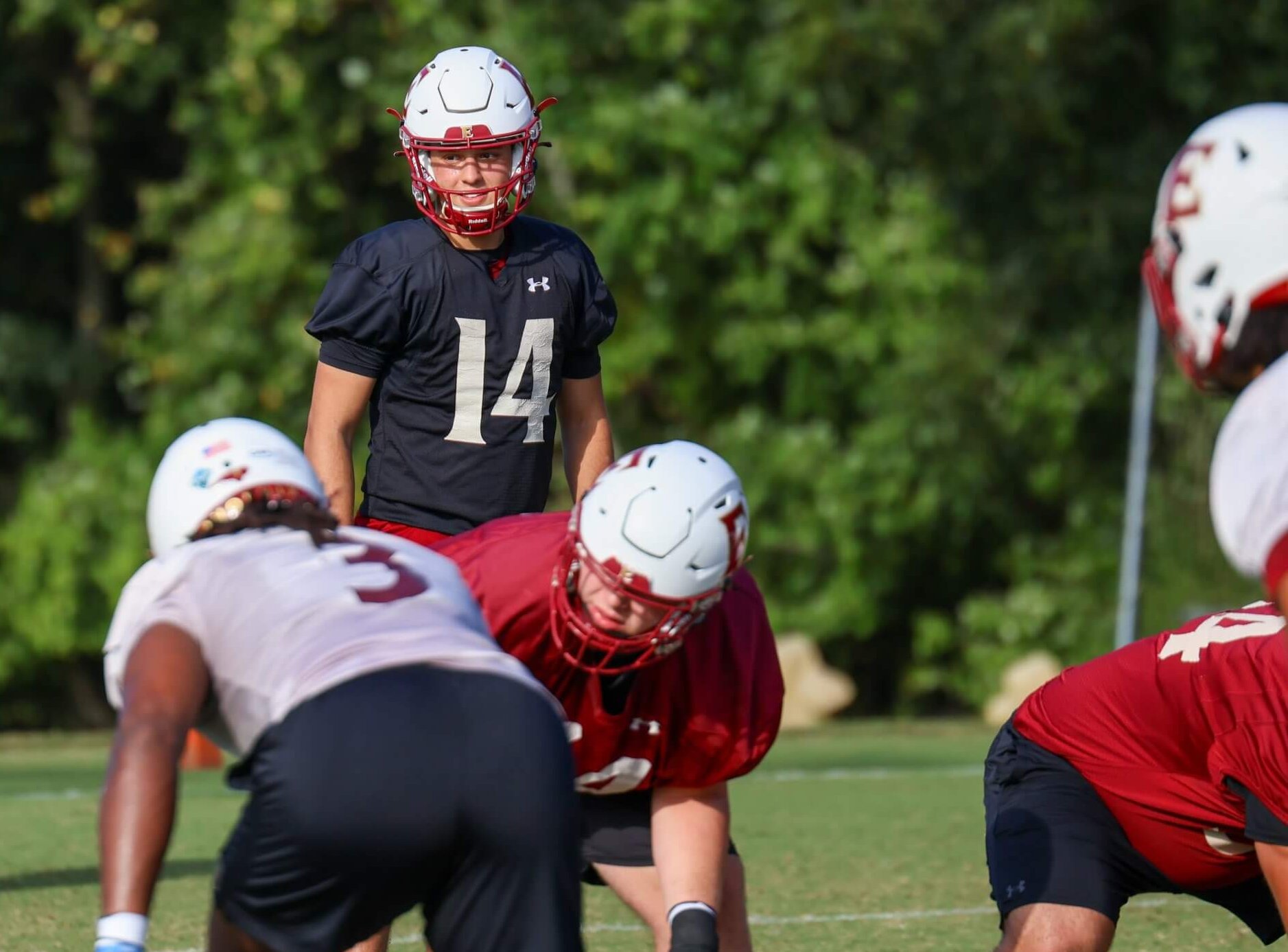
The football team even has a Jewish quarterback, Elijah Guttman, who spent years on teams where players would gather to recite prayers about Jesus. Not at Elon. “Coach doesn’t want to make Christianity the faith of the team,” Guttman told me.
This has created a climate in which Jews are primed to assume that the school is acting with good intent, even when some disagree with what it does around Israel or antisemitism.
Book’s schoolwide email after the Hamas assault referred to the “devastating and deliberate attacks against Israeli civilians,” but otherwise avoided weighing in on the conflict itself, and insisted that “harassment against any member of the Jewish, Israeli, Palestinian, Arab or Muslim communities” was unacceptable at Elon. It also came four days late, but generated little of the rancor that greeted other presidents who waited to speak out — or were seen as insufficiently supportive of Israel — in part because nobody seemed to believe that Elon had a problem with the way it treated Jewish students.
A progressive — and pragmatic — approach
I found Book’s approach interesting in part because it diverged from other presidents praised for their approach to campus antisemitism. Ronald Leibowitz, who was president of Brandeis University when it received the other “A” grade from the ADL, had swiftly accused Students for Justice in Palestine of supporting Hamas, banned the club from campus and then became one of the first university leaders to have student protesters arrested after Oct. 7.
Daniel Diermeier, the chancellor of Vanderbilt, which was upgraded to an “A” of its own this year, has agreed with conservatives that campuses are becoming hotbeds of radicalism.
Florida governor Ron DeSantis announced that his state’s public universities were open to students fleeing antisemitism elsewhere, and Ben Sasse, the University of Florida’s president at the time, called a professor’s comments comparing Israel to Nazi Germany “antisemitic drivel,” and said campus protesters were making “an ass and an idiot” of themselves.
Book, who has led Elon since 2018, has done none of this.
When I ran into her before a Shabbat service at Hillel, I asked how the school had earned its reputation for protecting Jewish students without angering those concerned about freedom of expression. “You do want a dynamic campus where we’re being challenged with ideas,” Book said of free speech on campus. “But when speech is at its worst, a community should reject it.”
Did anti-Zionism represent that kind of unacceptable speech?
“We do not use the IHRA definition,” she said.
This marked another deviation from the prescribed best practices that Elon seems to be sidestepping. The Trump administration and many large Jewish groups have pushed universities, including Columbia, to adopt the controversial International Holocaust Remembrance Alliance’s working definition of antisemitism, which considers a broad swath of criticism toward Israel — accusing it of racism, for example, or holding it to a double standard — to be antisemitic.
By this definition, almost the entire protest movement on campuses is a direct affront to Jews.
Elon instead relies on the Jerusalem Declaration on Antisemitism, a document created by a number of Jewish scholars as an alternative to IHRA to offer a more detailed framework. It holds that denying Jews the right to “flourish collectively” in Israel is antisemitic, but calling for a binational state “between the river and the sea” is not.
Universities have been slow to adopt the IHRA definition, which draws its credibility from recognition by various countries and state governments. The Jerusalem Declaration has found even less institutional backing. The ADL furiously lobbied the Biden administration to exclude it from the White House’s national plan to counter antisemitism. And when I was reporting at George Washington University a few years ago, a speaker from the pro-Israel StandWithUs told students the Jerusalem Declaration was the result of “a group of antisemites that got together and defined what antisemitism is.”
Dooley, the head of student life, seemed unbothered by the fracas over definitions, saying that the school’s goal was to support any student who reported discrimination regardless of whether it met a specific definition.
Many of the explanations I heard from Elon’s leadership, including this one, seemed like platitudes: “When you are a university leader that tries to stay on the pulse of what’s happening with students, you can quickly address challenges,” Dooley told me during our conversation at his office in the Alamance Building at the heart of Elon’s historic campus.
But I ran into Dooley the next day, zipping through the opposite side of campus on a golf cart and stopping to chat with students and staff, and he showed up again at Hillel’s Shabbat service, seeming, in fact, to be aware of what was happening with students.
Book, the president, participated in one of Elon’s study abroad programs related to the Holocaust and said she did all the readings alongside students. “It’s really important for them to see us as learners with them,” she said. “We’re modeling, ‘Hey, we’re all in this.’”
There also seemed to be some clever ways that administrators sought to push the campus climate toward civility without, strictly speaking, silencing anyone. Book’s creation of the faculty committee just so happened to bring professors and staff with the strongest feelings about the conflict to work together on a shared task, which may have helped Elon avoid the academic feuds that have taken place elsewhere.
“It gave us all an opportunity to disagree — and some cases, like really fight — in a space that we knew was confidential,” said Brian Pennington, director of Elon’s Center for the Study of Religion, who led the committee.
And while the school hasn’t banned speakers or canceled events, it has policies that can make holding protests burdensome, including a requirement that organizers cover the cost of campus security for any event that poses a “safety risk,” a term that is not defined.
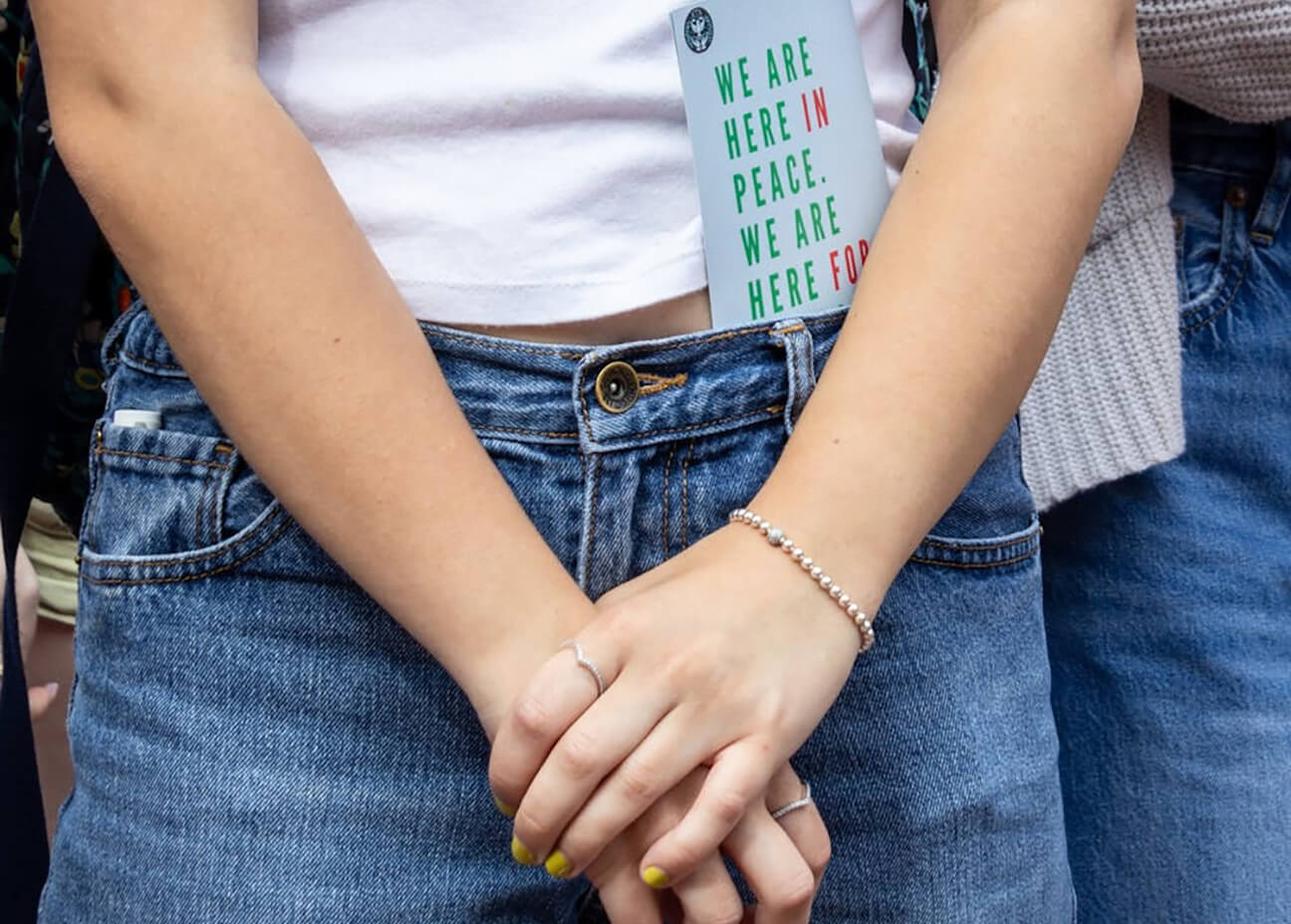
There has never been a Students for Justice in Palestine chapter at Elon, although Students for Peace and Justice (SPJ, rather than SJP) has organized two marches focused on Gaza since the war began. But Madeline Mitchener, one of the club’s leaders, told me that she often has to choose between requesting funding for queer coffee hour or paying for security at a march.
Ross Marchand, an attorney with the civil liberties group FIRE, said Elon’s “safety risk” provision “gives the administration too much leeway to burden expression that is unpopular.”
“Elon applies its policies in an even-handed, content neutral manner,” a spokesperson said in a statement.
While the school said requests for demonstrations are normally approved or denied within two business days, some events can take weeks to be approved and include negotiations with the administration. Organizers of the Gaza marches agreed to avoid certain chants and rhetoric — especially those targeting Zionists or invoking “intifada” — that Hillel’s leadership said would be especially offensive, but it was difficult to determine whether this was truly voluntary or gently coerced by school officials with the power to withhold approval.
Keeping students happy
None of the university leaders mentioned it, but Elon has a financial incentive to keep its students happy. Many of the country’s elite universities have huge endowments that they use to fund operations and discount tuition. Harvard, for example, lists an annual cost of around $86,000 but students actually pay an average of $18,000.
Elon, which means oak in Hebrew, was founded in 1889 as an egalitarian Christian college and has historically had a tiny endowment. It sat at just $5 million in 1980, around the time that president J. Fred Young realized the school offered little more than new community colleges in the area but charged five times more in tuition. The small endowment has made it hard to diversify the school, but it has also meant that prioritizing student satisfaction is a financial imperative.
(Elon’s endowment is now more than $300 million, still paltry compared with the $15 billion controlled by Columbia and $50 billion at Harvard, and Elon students pay close to 70% of the full cost to attend.)
To draw more students, Young hired a landscape architect who specialized in luxury resorts to redesign the campus and transform the school into “a storybook southern college.” And during a major construction push in the 1990s, Elon opened a sprawling fitness center — complete with a pilates studio and squash courts — before it upgraded the library. It’s currently in the process of building a new recreation building with an Olympic-size pool. I passed a suggestion board at one of the dining halls where the staff replied to every request by hand (“Iced coffee and ice cream toppings… stay tuned.”). The maintenance team has boasted of cleaning every bathroom on campus before 8 a.m.
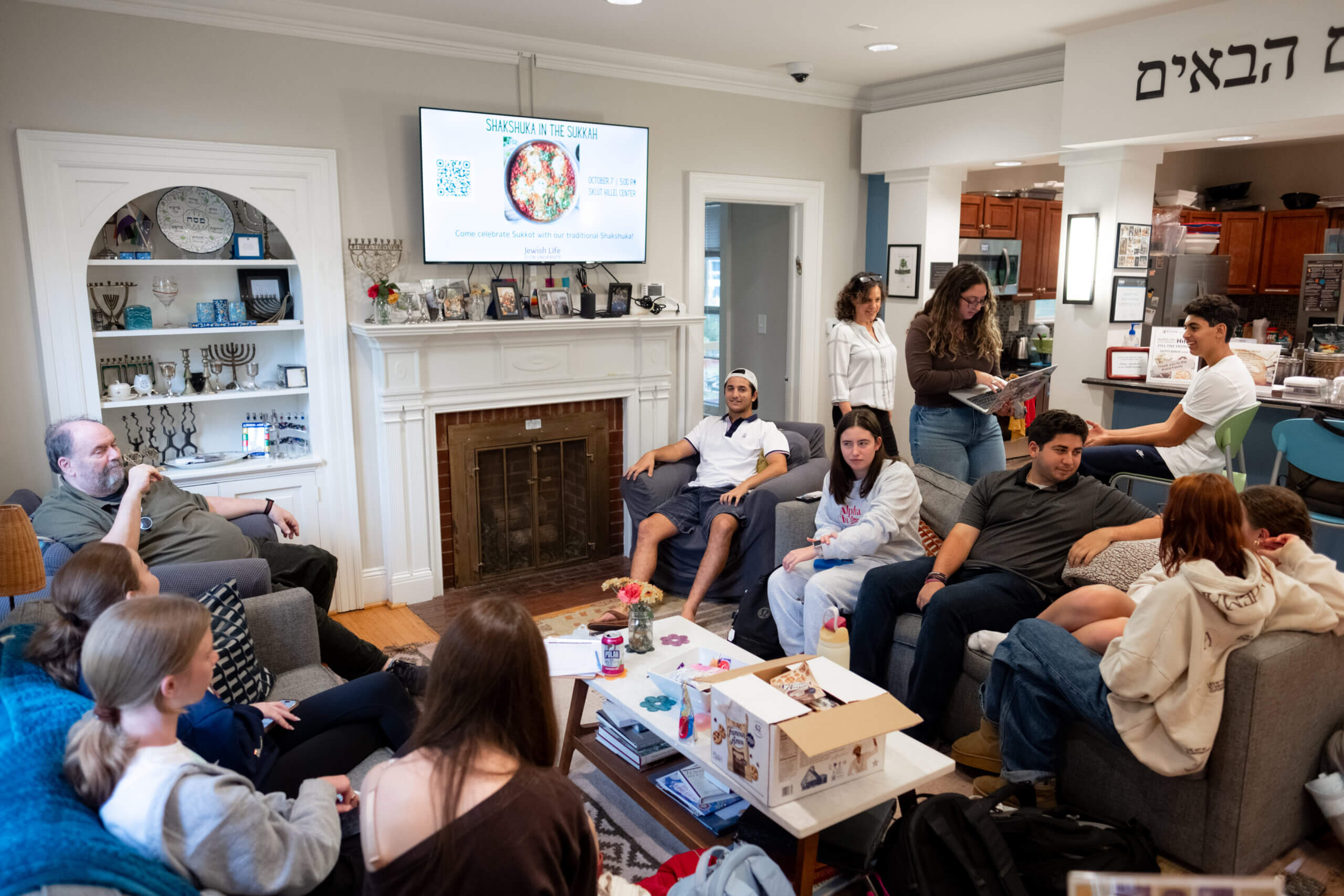
A tent encampment at the center of campus or an occupation of the president’s office, the sort of things that took place elsewhere, wouldn’t just violate Elon’s preference for civility — it would undermine the school’s insistence that it answers to the students in ways that avoid confrontation.
When LGBTQ students protested the Chick-fil-A outlet on campus, the school created a presidential task force and ultimately created a Gender and LGBTQIA Center that won it a place on the national CampusPride index (even as the restaurant remained). And Dooley said that during Black Lives Matter protests around the country, the administration managed to preempt a planned list of student demands by meeting with the organizers early in the process.
Raucous protests would also threaten more than two decades of work that Elon has done to make Jewish students feel comfortable on campus. By the 1990s, Young’s push to grow the school by scooping up children with middling grades, who were being turned away from the country’s elite liberal arts schools as competition increased, had worked. (“We shouldn’t lust for a college full of highly intellectual students,” Smith Jackson, Dooley’s predecessor, told the author of a book about Elon’s growth).
In 1993, as enrollment approached 4,000 students drawn from across the East Coast, a few dozen Jewish students organized under the banner of the Jewish Awareness Cultural Society. But they weren’t immediately embraced; budget requests for the earliest incarnation of Hillel at Elon show the student government slashing funding for Shabbat dinner nearly in half and attempting to correct the line item to read “Sabbath dinners.”
This was around the same time that Elon decided to move on from its Fighting Christian moniker, which was represented by a red-haired mascot, who did not look especially aggressive nor Christian but still managed to alienate prospective students.
Not everyone was happy about the change. A local official who had graduated from Elon wrote an angry email to the school suggesting that the change was a cheap bid to recruit more students from the north, with what may have been a rather pointed reference to the growing number of Jews on campus. “One wonders what the new administration will think is a correct name: the Yankees? The money changers?” David Barber wrote, according to a copy of his 1999 email held in the university archives.
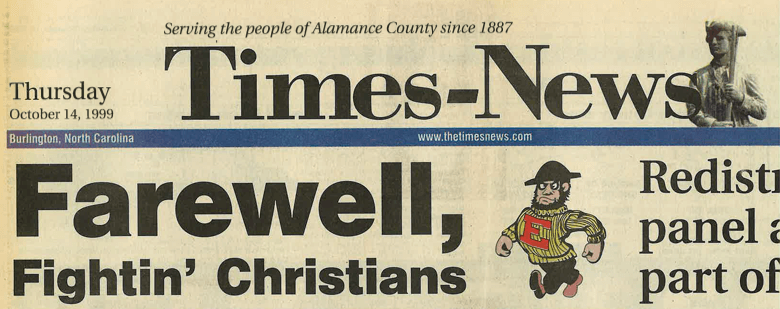
And when the school solicited ideas for a new mascot, the community overwhelmingly voted to become the Crusaders, an idea that the school’s new president Leo Lambert promptly rejected. “The Crusades are not regarded in the very late 20th century as a happy event,” he wrote in a note during the selection process. “To go from Fightin’ Christians to the Crusaders would be to go from the fryin’ pan into the fire.”
The eventual transition to Elon’s new mascot, the Phoenix, in 2000, removed one of the most obvious hurdles to drawing more Jewish students. But when Jeff Stein joined Elon as an assistant dean two years later, he found few resources for the growing number of Jews on campus.
Stein said that in the early days, Hillel International told Elon to focus on staffing rather than opening a building for Jewish students on campus. The school first hired a part-time employee to work 18 hours a week, but by 2010 it had two staff members dedicated to Jewish life. “It was really about having a champion — someone students and parents could turn to, someone who was waking up every day thinking about Jewish life,” Stein said.
Staying independent
Stein said that Elon decided early on not to bring an official branch of Hillel’s centralized North Carolina operation to Elon. “We needed to do it our way,” he said. That means “Hillel” at Elon is technically limited to a student club and campus building, and the staff all work for the university.
This has allowed Elon to carefully construct its Jewish life staff. When I was reporting on George Washington University, some anti-Zionist Jewish students told me they felt abandoned by the school because the only campus rabbi worked for Hillel, which has an official pro-Israel stance and has been targeted by student protests at GW.
But at Elon, campus rabbi Maor Greene, who is nonbinary and previously worked for the progressive Jewish climate change group Dayenu, said they have been able to support left-wing Jewish students. “I don’t think there have been really loud, anti-Zionist students that we’ve lost touch with compared with other institutions,” Greene said. “They’re not connected with Hillel and Chabad, but they’re not disconnected from Jewish life.”
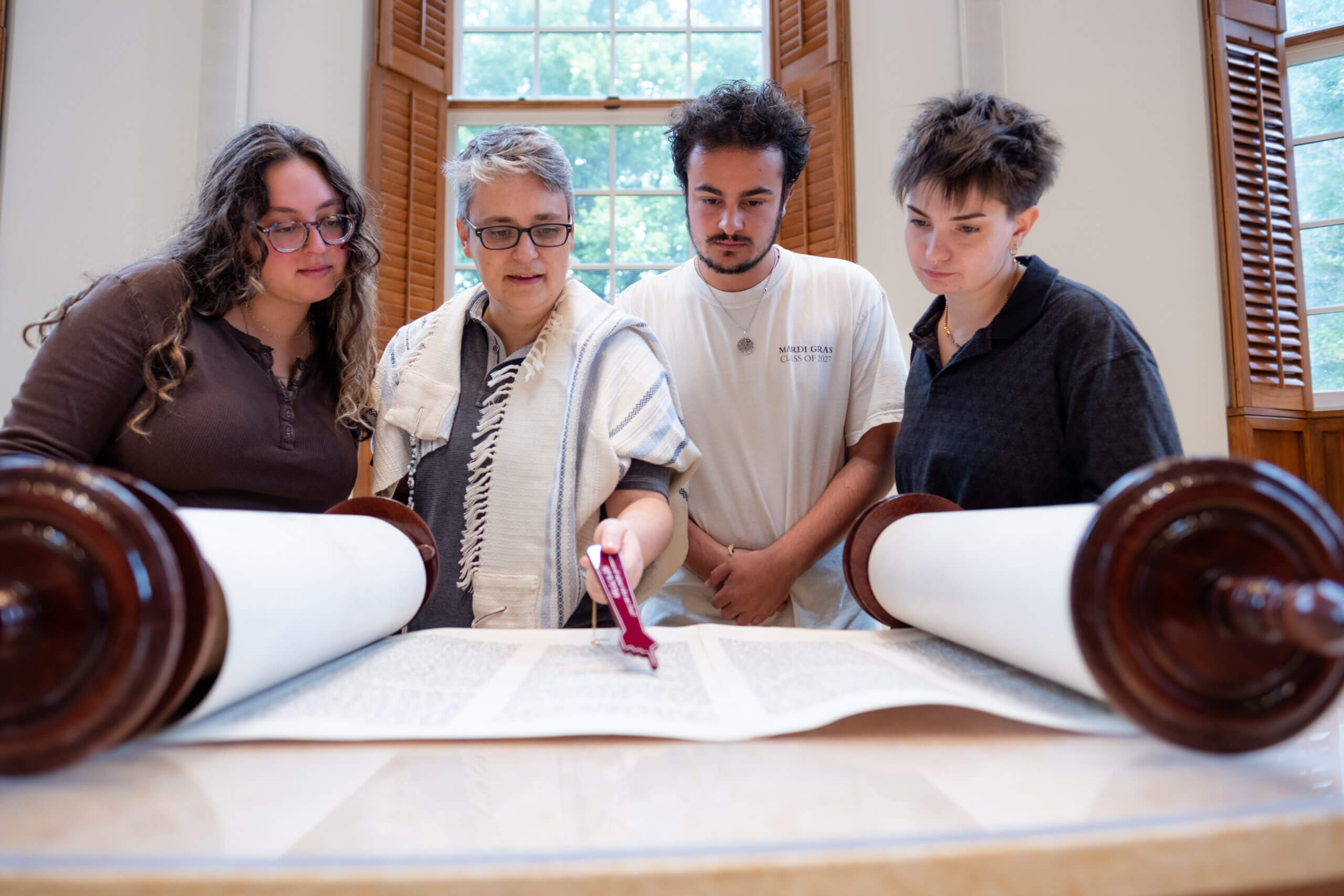
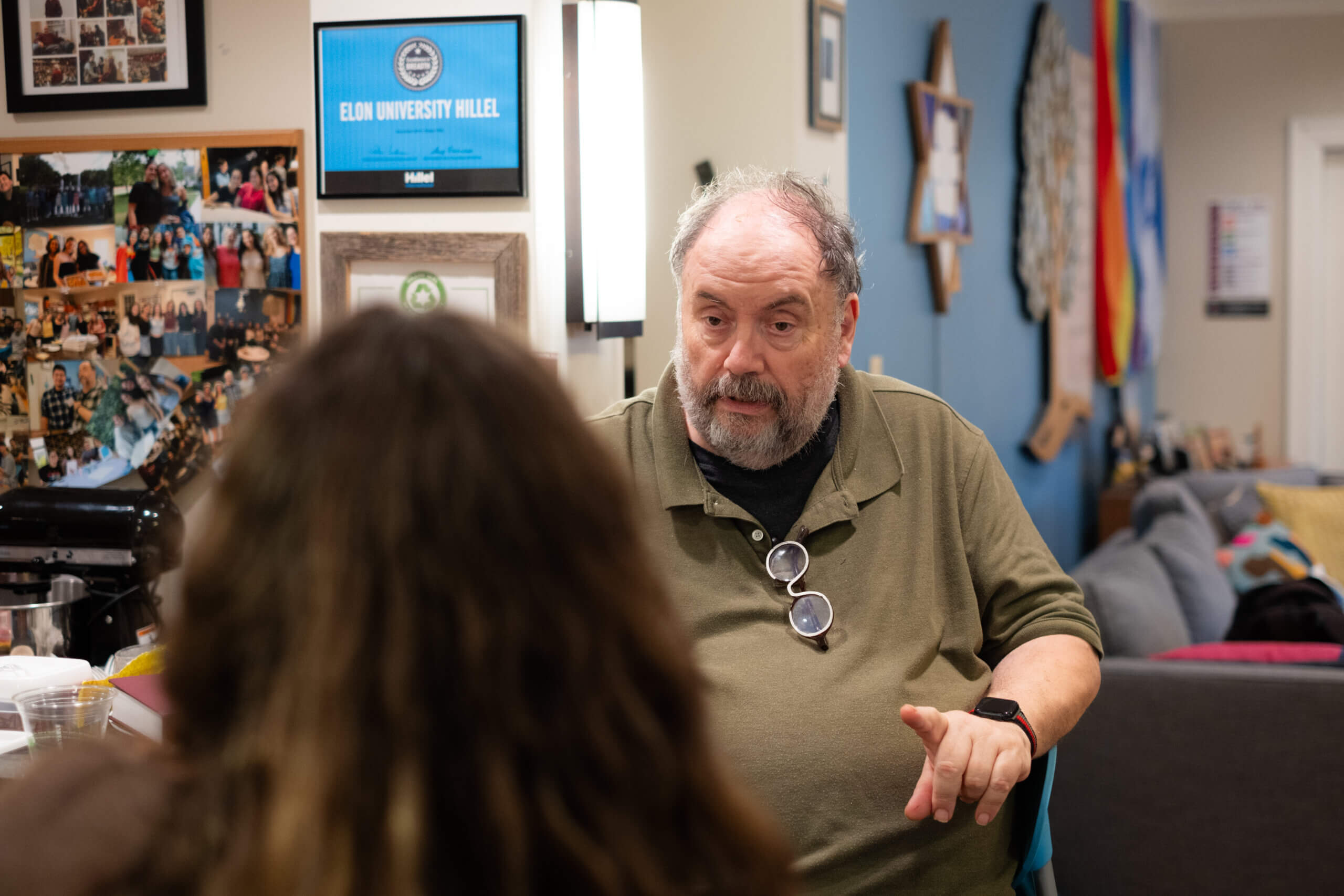
And while Greene does not work much with “the super right-wing Jewish students,” Elon’s Jewish educator, Boaz Avraham-Katz, who teaches Hebrew and an Israeli food class called “Falafel Nation” and posed for his official staff photo wearing a yellow ribbon for the Israeli hostages in Gaza, has maintained those connections.
Polk, the director of Jewish life, has sought to maintain a careful neutrality and called me after I left campus to make sure she had not disclosed her own political position on Israel (she hadn’t).
Staff have discouraged students from creating campus chapters of national organizations, meaning that not only is there no Students for Justice in Palestine, but there is also no affiliate of a group like Students Supporting Israel, meaning student activists aren’t coordinating with leadership from outside the community.
If at some schools, protests against Israel have been impossible to avoid, the opposite seems to be true at Elon. Julia Finkel, Israel chair at Hillel during spring of 2024, said that the message from leadership was: “They let us have our demonstrations, let them have theirs,” and many seemed to do just that.
“The pro-Palestinian marches, from what I understand, weren’t really pro-Palestinian, they were more ‘peace for everyone’ or whatever,” Spiegle, the parents council chair, told me with a laugh. “Compared to what was going on at other campuses, we’re like, ‘Fine, let them have their little walk.’”
But the picture of amity between the two sides was slightly more complicated than it appeared.
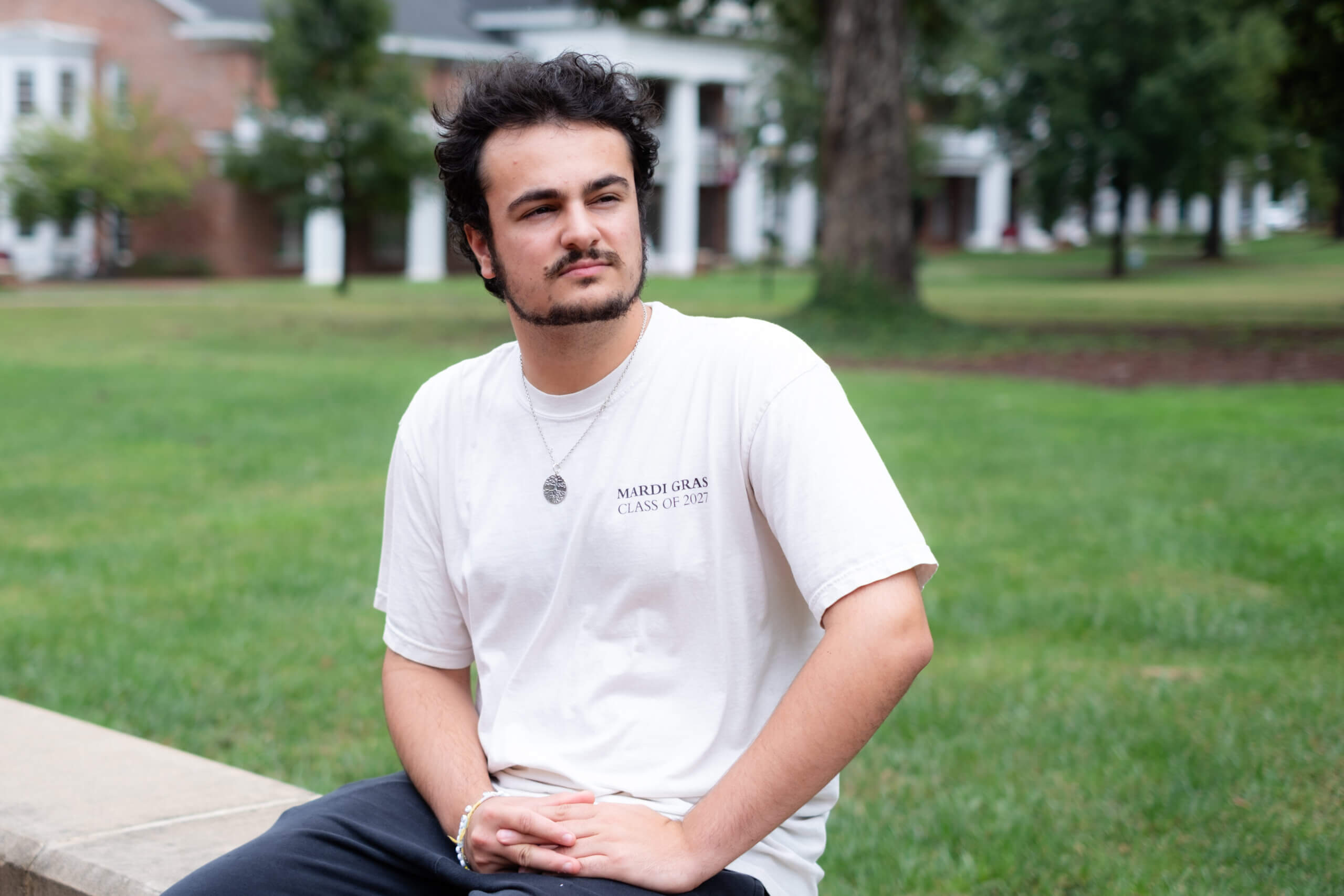
Frankel, now a senior, is one of the Jewish students who started to feel unwelcome at Hillel after the war began. He said in the weeks after Oct. 7, some of the students who spent time there were calling for the destruction of Gaza and he felt “iced out” for objecting.
Greene said they worked to temper the most extreme rhetoric on both sides. “There were some strong feelings in the wake of Oct. 7 and it was like, ‘Okay, you might have strong feelings but that doesn’t mean that we want to bomb the entire civilian population of Gaza like, that’s a red line.”
Frankel and Trayner, another Jewish student who participated in the pro-Palestinian marches, said they clashed with Mandi Lichtenstein, the Hillel president at the time, over the marches and a day of programming focused on Gaza that Frankel organized at the campus radio station.
“The Hillel president’s response was to bully us online and kind of ice us out in person,” Frankel said, adding that she came to one of the marches to film speakers.
When I spoke with her last year, Lichtenstein was the least sanguine about the climate at Elon. She agreed that it was better than other campuses, but said her attempts to explain why various terms (“Zionist” used as a pejorative, “apartheid,” “intifada”) were antisemitic had not seemed to penetrate with student activists.
“I’ve just tried to do everything I possibly can to stop it before it starts here — and I know it’s going to start because it already has,” she told me. “They don’t educate themselves or know what these words mean. They have no idea what these words mean.”
This particular conflict didn’t seem inescapable — everyone involved had chosen to participate in student activism — but it pointed to real tensions on campus.
“People are going crazy, because we don’t want what’s happening at Columbia and other schools to creep into here.”
Shani SpiegleCo-chair of the Jewish Life Advisory Council at Elon University
Greene said they were struck by the “A” grade that Elon received from the ADL because, despite various helpful moves by the administration, there was still “just a huge social fallout” as students saw each other post things on social media and ended friendships in the same way that was happening at other schools.
And while many Jewish parents are strong advocates for Elon, others have raised alarms over minor incidents. After Elon’s Facebook page shared a collage of students who had studied abroad, including one woman in Jordan wearing a red-and-white keffiyeh around her shoulders, a member of the Mothers Against College Antisemitism group expressed her despair.
“Is there any question what that young woman believes about Jewish people?” she asked.
Spiegle, the parents council leader, said she had been rattled when her own son had studied abroad in Dubai and sent home a photo of himself wearing the same kind of scarf, which is popular in the Middle East. “He was like, ‘Mom, not everyone who wears that is antisemitic — there are a lot of Arabs in the world,’” she recalled. “And I was like, ‘OK, you’re right, you’re right.’”
“But people are going crazy,” she added. “Because we don’t want what’s happening at Columbia and other schools to creep into here.”
A path forward
Despite some discord, there is equanimity at Elon that seems straight out of a different era, before “normalization” became a dirty word and both Students for Justice in Palestine and Hillel International implemented policies that banned partnerships with groups that had diverging views of the Israeli-Palestinian conflict.
Before posting divisive memes on Instagram became a favored method of political activism for college students. And before colleges decided — often under great duress — to settle on a politically expedient understanding of antisemitism.
But it also harkens back to a time before Oct. 7, 2023. Before Palestinian militants broke through Israel’s ostensibly impenetrable barrier surrounding Gaza, rampaging through military posts and massacring more than 1,100 people often in shockingly brutal fashion, and kidnapping hundreds more. Before Israel responded with a brutal aerial and ground campaign in Gaza, killing more than 64,000 Palestinians and wreaking more death and destruction in two years of war than in the prior 75 years of Israel’s existence.
The fallout from this war has torn apart families and Jewish communities. It has reshaped American politics and posed fundamental questions about the position of Jews in the United States, and the country’s alliance with Israel.
Elon’s success in avoiding some of the schisms seen elsewhere is not without its tradeoffs.
“If you’re engaging respectfully and being nice, but you’re not actually delving into issues that matter, I don’t know that I consider that to be entirely good,” Kirstin Boswell, the university chaplain, told me.
Boswell doesn’t think that’s exactly what has happened at Elon, though. She says students care deeply, but they’re also thoughtful about how they demonstrate that.
And it’s hard to imagine what was lost by Students for Peace and Justice’s leaders meeting with Lichtenstein, one of their harshest critics, before a march for Palestine to hear her concerns about slogans that target Zionists. Or to see a problem with Geoffrey Claussen, a Jewish studies professor, helping Frankel and Trayner launch Tikkun Olam, a club to promote a more progressive view on Israel.
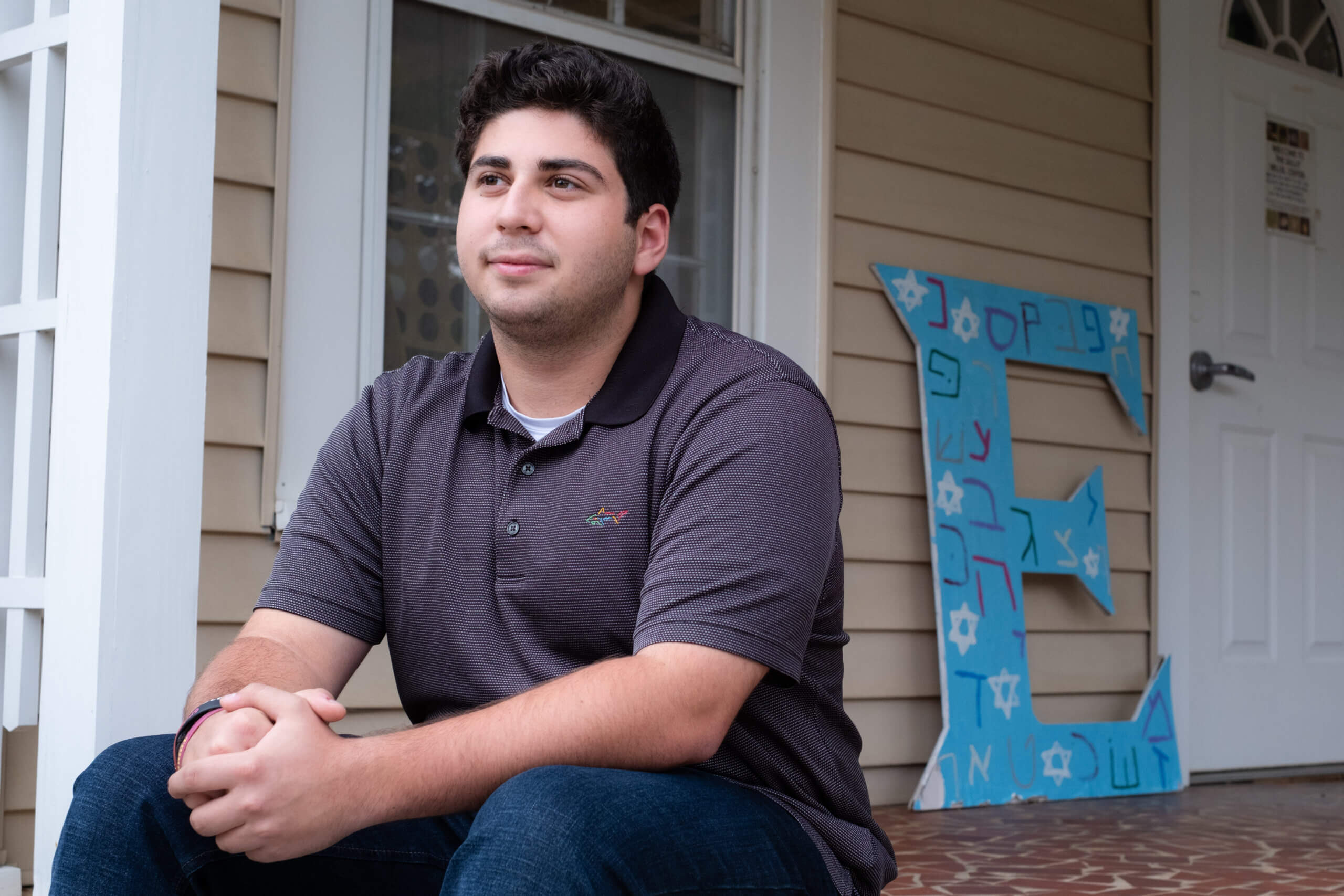
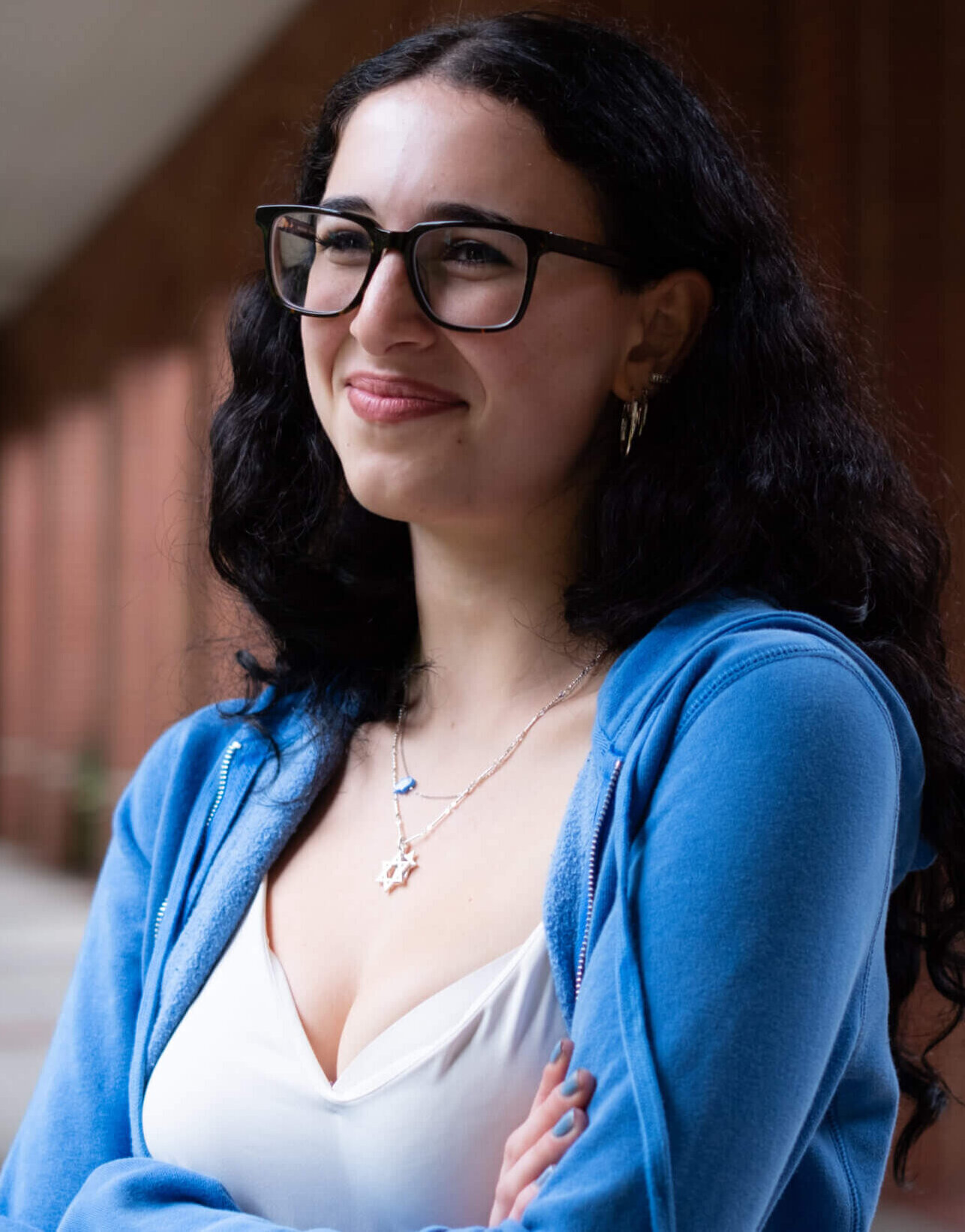
And there’s Benji Stern, one of Hillel’s student presidents who helped organize the gathering for Israel after Oct. 7, telling everyone about the club at Hillel’s Rosh Hashanah dinner. Frankel was sitting at dinner next to Bermont, the freshman who landed at Elon in part because she was tired of being called a genocidal colonist by friends who never seemed to actually want to talk about the conflict. “He thinks differently than I do and we were still able to sit and exist and enjoy each other’s company,” Bermont said. “We can still walk to class.”
This spirit of camaraderie is part of why there’s not an SJP chapter at Elon, or one for Jewish Voice for Peace. “I don’t want to unnecessarily trigger people — especially if it stops us from having a helpful discussion,” Trayner told me. “Jews are scared and that’s not something I want to ignore.”
A few days ago, Avraham-Katz stopped Frankel while crossing one of the streets on Elon’s bucolic campus and told him, in Frankel’s recollection, “I just want you to know, with everything that’s going on right now, I’m seeing it and I’m disgusted — I just want to see peace.”
Mendelsohn, a member of Hillel’s “Shabband” that performs on Friday nights, told me that things have changed since the war began. That the gulf between students who felt cast out of Hillel after Oct. 7 and those who found solace in the house full of memorial candles and dog tags for the hostages has been shrinking. The yellow ribbon next to the front door is faded and weathered.
“How people feel about the two sides now is so different than how people felt about it two years ago,” he said of the war. “People just want it to stop.”
And the parents, who at other schools have been some of the loudest voices demanding the expulsion and deportation of dissident students, gathered with their children under the pavilion for a Shabbat celebration that did not dwell on the fight against antisemitism.
Spiegle, from her perch atop the parents council, reassured everyone that there is a way to protect Jewish students without showing up at the president’s office with pitchforks every time someone comes after Israel on campus. “We have to allow free speech,” Spiegel said.
“And we have to let the students — as much as they can — handle it.”
Correction: A previous version of this article incorrectly referred to the University of North Carolina official involved in an altercation with protesters. It was the chancellor, not the president.
The post This school is fighting antisemitism all wrong. Why is it working? appeared first on The Forward.
Uncategorized
Iran President Says Trump, Netanyahu, Europe Stirred Tensions in Protests

Amnesty International Greek activists and Iranians living in Athens hold candles and placards in front of the Greek Parliament to support the people of Iran, in Athens, Greece, January 30, 2026. Photo: REUTERS/Louisa Gouliamaki TPX IMAGES OF THE DAY
Iranian President Masoud Pezeshkian said on Saturday that US, Israeli and European leaders had exploited Iran’s economic problems, incited unrest and provided people with the means to “tear the nation apart” in recent protests.
The two-week long nationwide protests, which began in late December over an economic crisis marked by soaring inflation and rising living costs, have abated after a bloody crackdown by the clerical authorities that US-based rights group HRANA says has killed at least 6,563, including 6,170 protesters and 214 security forces.
Iranian Foreign Minister Abbas Araqchi told CNN Turk that 3,100, including 2,000 security forces, had been killed.
The US, Israeli and European leaders tried to “provoke, create division, and supplied resources, drawing some innocent people into this movement,” Pezeshkian said in a live state TV broadcast.
US President Donald Trump has repeatedly voiced support for the demonstrators, saying the US was prepared to take action if Iran continued to kill protesters. US officials said on Friday that Trump was reviewing his options but had not decided whether to strike Iran.
Israel’s Ynet news website said on Friday that a US Navy destroyer had docked at the Israeli port of Eilat.
Trump, Israeli Prime Minister Benjamin Netanyahu and Europeans “rode on our problems, provoked, and were seeking — and still seek — to fragment society,” said Pezeshkian.
“They brought them into the streets and wanted, as they said, to tear this country apart, to sow conflict and hatred among the people and create division,” Pezeshkian said.
“Everyone knows that the issue was not just a social protest,” he added.
Regional allies including Turkey, the United Arab Emirates, and Saudi Arabia have been engaging in diplomatic efforts to prevent a military confrontation between Washington and Tehran.
The US is demanding that Iran curb its missile program if the two nations are to instead resume talks, but Iran has rejected that demand.
Foreign Minister Araqchi said in Turkey on Tuesday that missiles would never be the subject of any negotiations.
In response to US threats of military action, Araqchi said Tehran was ready for either negotiations or warfare, and also ready to engage with regional countries to promote stability and peace.
“Regime change is a complete fantasy. Some have fallen for this illusion,” Araqchi told CNN Turk. “Our system is so deeply rooted and so firmly established that the comings and goings of individuals make no difference.”
Uncategorized
CBS News Chief Weiss Touts Commentator Push, Draws Mixed Reaction in Newsroom

FILE PHOTO: Bari Weiss speaks at the 2022 Milken Institute Global Conference in Beverly Hills, California, U.S., May 3, 2022. REUTERS/Mike Blake/File Photo
Three months into her tenure, CBS News Editor-in-Chief Bari Weiss presented a vision this week to revitalize the nearly century-old broadcaster, in part by applying the same formula that fueled the rise of The Free Press – recruiting commentators who offer observations about news, politics and culture.
From adding 19 new commentators, including some drawn from The Free Press ranks, to introducing new podcasts, newsletters and live events, employees were variously energized or skeptical of the ideas presented by CBS’ new boss. Weiss’ notions about how to thrive in a post-Walter Cronkite era struck some as in conflict with the stated mission of doing great journalism, according to seven current and former CBS News employees and industry insiders.
In her presentation, Weiss also envisioned a galaxy of cross-platform stars, like New York Times columnist and CNBC host Andrew Ross Sorkin, whom she highlighted with a meme: “Sorkining.” The Dealbook founder is the author of several business books, executive producer of the Showtime series “Billions,” and maestro of the New York Times premiere live event, and a Davos fixture.
“It’s like saying ‘Hey, Hollywood. Why can’t you just be like Leonardo DiCaprio?’ If people knew how to bottle that magic and make someone a star, they would do it,” said a former CBS employee.
An industry veteran said the idea suggested a lack of appreciation for the power of television, which has been making stars for generations: among them “CBS Evening News” anchors Dan Rather, Connie Chung, Walter Cronkite and Katie Couric.
The 41-year-old Weiss, who has no broadcast experience and has been described as a distant leader by six current and former CBS News sources, now has to deliver on her promise of capturing new and younger viewers – including political independents who don’t see themselves reflected in mainstream media. It is a daunting undertaking that has hobbled executives across broadcast and cable, including former CNN chief Chris Licht, ousted in June 2023.
One supporter sees the charismatic Weiss as a modern-day Katharine Graham, the legendary publisher of the Washington Post, who was undermined by underlings when she took over in 1963. Graham transformed the paper and led it through its Watergate-era heyday, and generally left editorial decisions to Executive Editor Ben Bradlee.
A current staffer, speaking on background, said, “People are saying, ‘Let’s give her a chance’ … I want to see her succeed. If she succeeds, we all succeed.”
CBS News and Weiss did not immediately respond to requests for comment.
PRIORITIES FOR CBS NEWS
Weiss, a former opinion journalist and media entrepreneur, joined CBS after parent Paramount owner David Ellison bought her five-year-old media company, The Free Press, for $150 million in October.
Some see Weiss’ playbook of expanding CBS’s journalism ranks with commentators as conflicting with other initiatives including breaking news and landing deep investigative stories, according to three current and former CBS News staffers and an industry veteran.
“There’s nothing wrong with that,” said the former employee. “But is that what a news division is or are they craving something completely different? That’s fine but don’t pretend it’s a news division.”
Another current CBS News staffer talked about past failures to capitalize on new ways of reaching the audience, such as leveraging the power of the Paramount+ streaming service to promote news shows, observing, “We have done a wretched job of being on the internet.”
Weiss is also attempting to change the news network’s political orientation, appealing to a wider cross-section of Americans, according to her remarks Tuesday. Weiss said she wants CBS News to reflect the friction animating the national conversation.
In broadening its perspective to include more diverse viewpoints, CBS News could ultimately lay claim to the uncharted ground for a center-right broadcaster, said Integrated Media Chief Executive Jonathan Miller, a veteran media executive who has held senior positions at News Corp and AOL.
“We need to commission and greenlight stories that will surprise and provoke – including inside our own newsroom,” Weiss said in her address to employees. “We also have to widen the aperture of the stories we tell.”
On that front, CBS has had mixed results so far. Earlier this month, “CBS Evening News” broadcast a widely panned segment featuring U.S. Secretary of State Marco Rubio in various meme-like situations, saluting him as “the ultimate Florida man.”
EARLY SUCCESSES
It has also seen successes, including Lesley Stahl’s interview with Trump son-in-law and Middle East advisor Jared Kushner and Special Envoy Steve Witkoff, within a week of brokering a peace deal between Israel and Hamas, and Norah O’Donnell’s “60 Minutes” interview with Trump. Paramount paid Trump $16 million to settle a lawsuit over its editing of an interview with his White House rival, former Vice President Kamala Harris.
It landed journalistic scoops, including interviewing the man who charged one of two gunmen who attacked a Jewish community gathering in Sydney, and exclusive video of Alex Pretti, the man killed by Border Patrol in Minneapolis, reading a tribute to a veteran who died in 2024.
Weiss announced that the network would bring in contributors with expertise in politics, health, happiness, food and culture, whom she encouraged staffers to use on-air. The roster includes Free Press columnist Niall Ferguson of the conservative Hoover Institution, as well as Casey Lewis, a former Teen Vogue and MTV editor who writes about youth culture.
“It’s great to have younger people, a diverse demographic and diverse ideology represented,” said Kathy Kiely, the chair in Free-Press Studies at the Missouri School of Journalism. “Newsrooms can’t do a good job unless we have that diversity in our ranks. What worries me is the emphasis on opinion over primary-sourced, reported facts.”
Weiss emphasized making content available online before it airs on TV to reach more viewers. CBS has long been in third place behind rivals ABC and NBC and, like most mainstream media, is struggling with audience declines as consumers migrate to social platforms.
Pew Research estimates about one-third of all adults get at least some news from podcasts. CBS News does not appear among Spotify’s or Apple’s rankings of the top 50 news podcasts.
One former employee expects the digital-first goal to be complicated because CBS hasn’t devoted sufficient resources to helping correspondents or anchors curate their social media presence or re-edit television interviews for YouTube or streaming.
Weiss encouraged staffers to think of the news organization as the best-capitalized media startup in the world.
“We are in a position, with the support of all of the leadership of this company, to really make the change we need.”
Uncategorized
IDF Strikes Hamas, PIJ Commanders in Gaza in Retaliation for Ceasefire Violations

File photo of a Hamas tunnel underneath a home in Rafah. Photo: IDF
i24 News – The Israeli military and security services announced a response on Saturday to a violation of the ceasefire agreement yesterday on Friday, that saw eight terrorists exiting the underground terror infrastructure in eastern Rafah.
Israeli security forces have, thus far, struck four commanders and additional terrorists from the Hamas and Islamic Jihad terrorist organizations across the Gaza Strip.
In addition, the IDF struck a weapons storage facility, a weapons manufacturing site, and two launch sites belonging to Hamas in the central Gaza Strip.
“The terrorist organizations in the Gaza Strip systematically violate international law, brutally exploiting civilian infrastructure and the Gazan population as human shields for terrorist activities,” the IDF and Shin Bet statement read.


